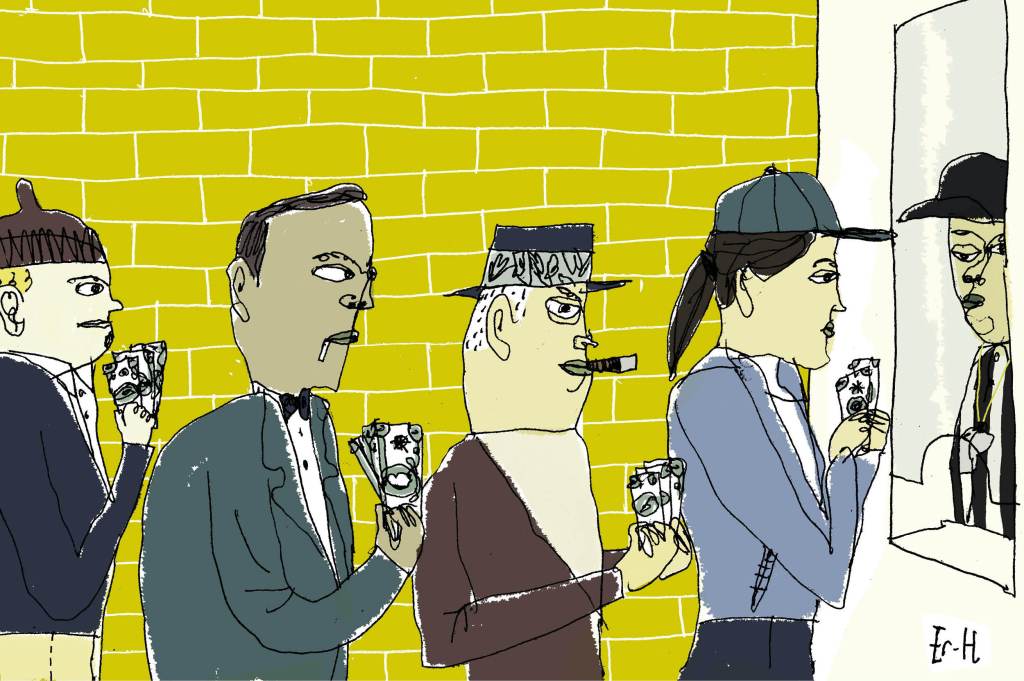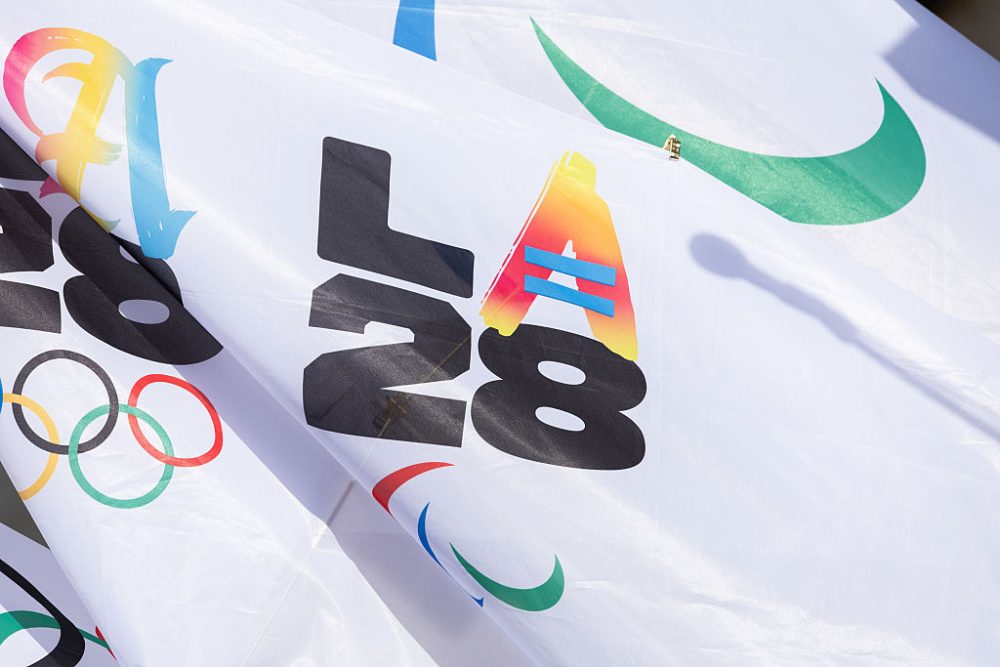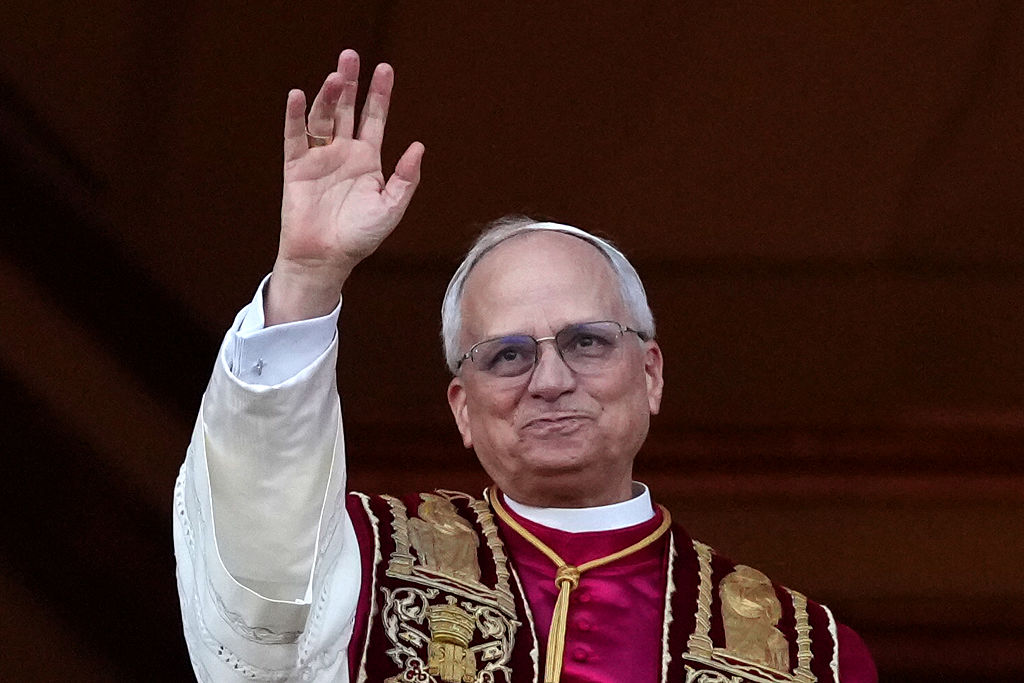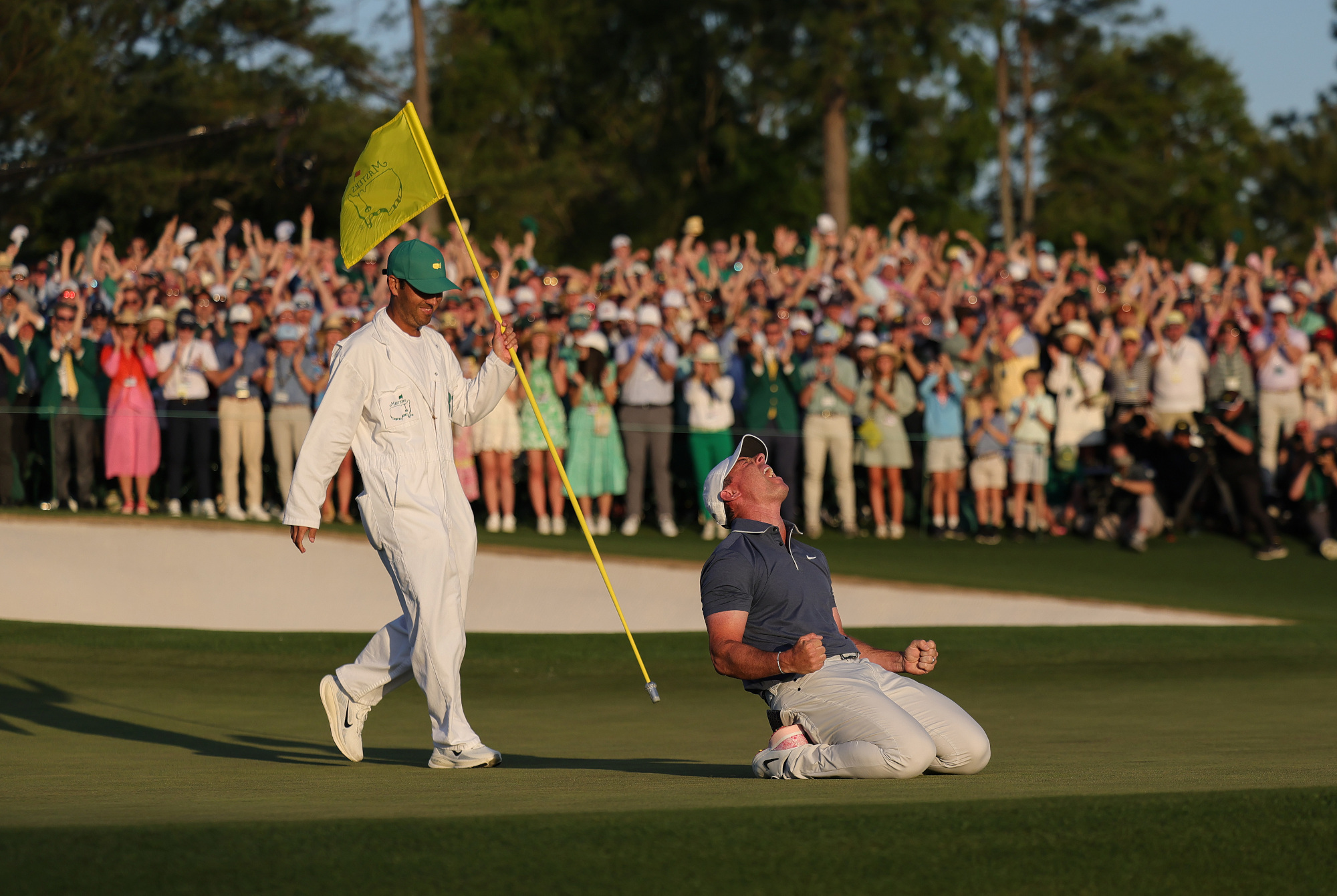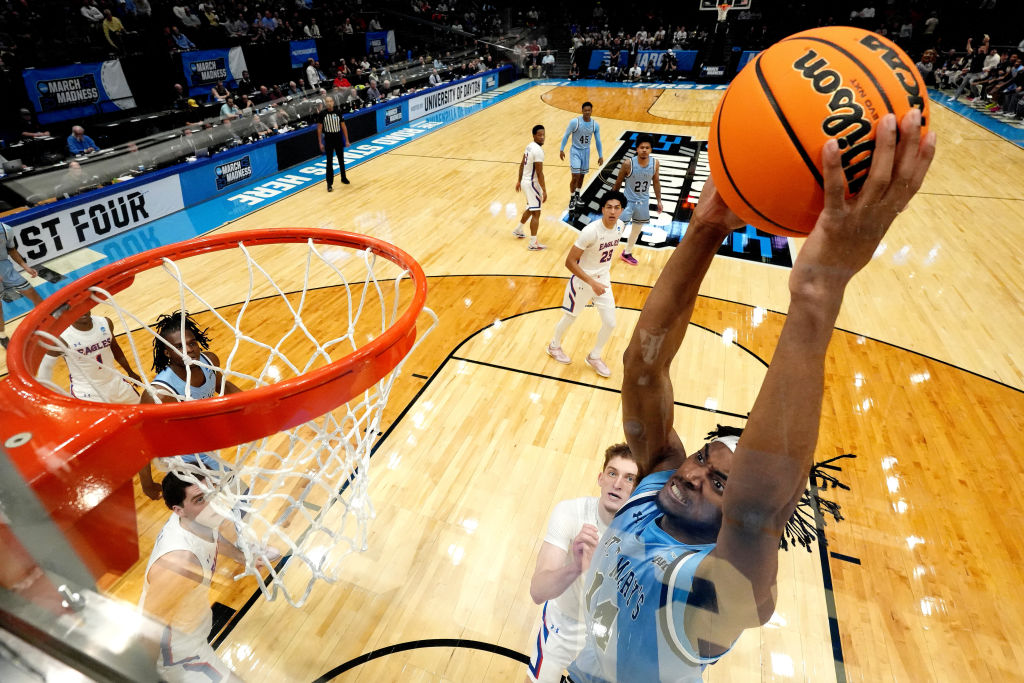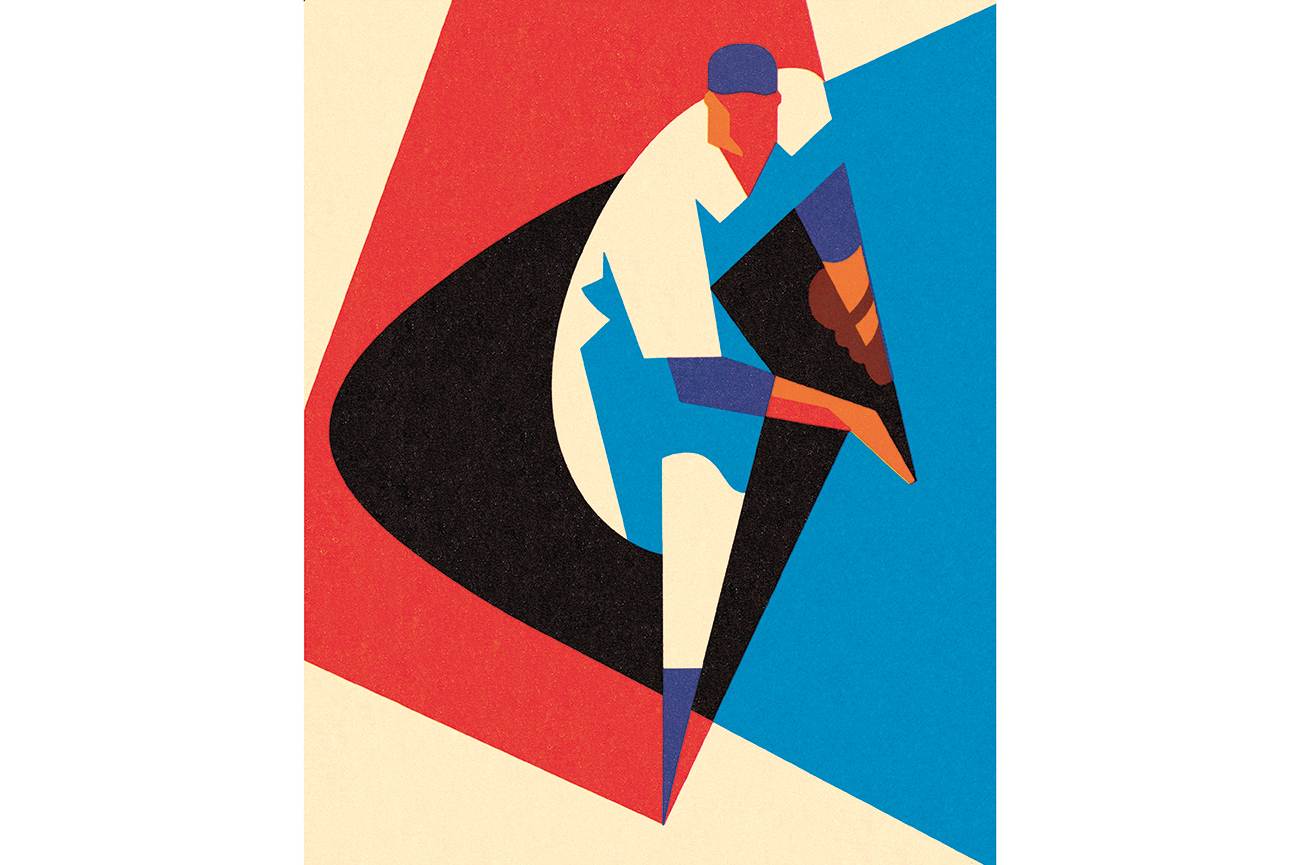A new football season has fans reaching for their wallets and e-wallets. Americans now bet more than $100 billion a year on the NFL through legal sportsbooks like FanDuel and DraftKings. Illegal gambling adds billions more. According to the American Gaming Association, 73.5 million bettors will make an NFL wager this year. Fifty million of us have skin in the game thanks to fantasy football teams that pay off in cash and bragging rights.
Until recently, the men who run pro sports pretended that fans loved the Lions, Bengals and Bears out of sheer team spirit and a love of tailgating. The first to own up to gambling’s role in the relationship was not Roger Goodell, the NFL’s animatronic figurehead, but NBA commissioner Adam Silver, whose pivotal 2014 New York Times op-ed argued that it was time for pro leagues to follow the money. “Gambling has increasingly become a popular and accepted form of entertainment,” Silver wrote. “Most states offer lotteries. Over half of them have legal casinos. Three have approved some form of internet gambling, with others poised to follow.” He was right: thirty-four states now allow sports wagers, with more in the pipeline. “I believe that sports betting should be brought out of the underground,” Silver concluded, “into the sunlight where it can be appropriately monitored and regulated.”
In 2018 the Supreme Court struck down a federal statute banning sports gambling, and pro sports capitalized. Today’s NFL reaps about a sixth of its annual revenue of $12 billion from licensing and partnerships with online bookmakers like DraftKings and FanDuel. Kevin Hart stars in DraftKings commercials while Jamie Foxx pitches BetMGM, which operates a lavish sportsbook beside State Farm Stadium, home of the Arizona Cardinals. This year the Washington Commanders opened a sportsbook at FedEx Field, the first one inside an NFL venue.
In September, DraftKings apologized for offering a “Never Forget” parlay that gave New Yorkers a chance to commemorate 9/11 by betting on the Jets, Mets and Yankees. The Athletic, which recently subsumed the Times’s sports department, offers more sports-betting pages than a newspaper could ever run. Bill Simmons’s popular podcast is as much about betting lines as O- or D-lines, while ads with speeded-up disclaimers (“Gamblingproblem?Call1800GAMBLER…) warn about the dangers of betting too much.
Before the 2023-24 season kicked off, Commissioner Goodell discussed the issue with NBC’s Mike Tirico. “Gambling is this constant conversation around the league,” Tirico said. “Are you comfortable with how the league is reconciling gambling as a business entity?”
“Well, Mike, it’s one of the reasons we opposed legal sports betting, because of the risk to the integrity of the game,” Goodell said. “So that’s always going to be our number-one priority. When the Supreme Court overruled that, we have to be in that space.”
And how. Ten current NFL players have been suspended for betting on sports, but that’s no more than an irritation, a sort of PR turf toe, for a league that has dived into bed with the gaming biz. This year’s NFL schedule climaxes with the first-ever Super Bowl in Las Vegas.
Smith College economics professor Andrew Zimbalist, who studies the links between money and sports, believes football has a gambling problem. Zimbalist calls the industry’s disclaimers “farcical” and says the seeds of future scandals are being sown on college campuses.
“Pro football would be a major sport even if nobody bet. Does gambling give it a boost? Certainly,” he tells me. But he sees the immediate danger in the sport’s de facto minor leagues. “Other than a few who receive NIL (name, image and likeness) money, college athletes aren’t paid. That makes them vulnerable.” He worries about a game-fixing scandal in college football’s near future. “We’ve already had betting scandals at Iowa and Iowa State. The NCAA has 130 investigations into inappropriate gambling.”
A new generation of fans may be just as vulnerable. “Recent data suggest that 75 percent of young men and women in US college dormitories place a bet in a given year,” says Zimbalist. “Many are already in debt. Now they’re inundated with sportsbook ads. Urging college students to turn their phones into betting machines — that’s a social dilemma in the making.”
There’s nothing wrong with a little action. My father was a part-time illegal bookmaker who told me a good bet ought to sting if you lose and make your day if you win. “Just don’t go hog-wild,” he said.
Football is now going hog-wild for legal gambling. There are no sure things in sports, but you can bet the game’s embrace of its sportsbook partners will turn out better for them than for bettors.
This article was originally published in The Spectator’s November 2023 World edition.



